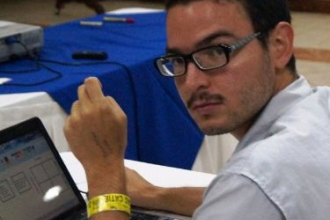
Tabaré Capitán presents at EfD - Central America Seminar Series
Research Proposal: Improving energy efficiency in Costa Rican households: the effect of pecuniary and non-pecuniary incentives in shaping the timing of consumption EfD researchers: Francisco Alpízar…



